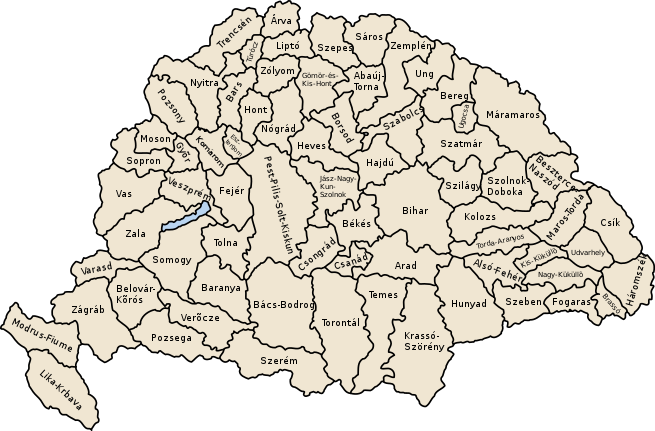Main Difference
The main difference between County and Parish is that the County is a geographical and administrative region in some countries and Parish is a type of ecclesiastical subdivision of a diocese.
-
County
A county is a geographical region of a country used for administrative or other purposes, in certain modern nations. The term is derived from the Old French conté or cunté denoting a jurisdiction under the sovereignty of a count (earl) or a viscount. The modern French is comté, and its equivalents in other languages are contea, contado, comtat, condado, Grafschaft, graafschap, Gau, etc. (cf. conte, comte, conde, Graf).
When the Normans conquered England, they brought the term with them. The Saxons had already established the districts that became the historic counties of England, calling them shires (many county names derive from the name of the county town (county seat) with the word “shire” added on: for example, Gloucestershire and Worcestershire).
The Anglo-Saxon’s “earl” and “earldom” were taken as equivalent to the continental use of “count” and “county” under the conquering Normans, and over time the two blended and became equivalent terms. Further, the later-imported term became a synonym for the native English word scir ([ʃiːr]) or, in Modern English, shire. Since a shire was an administrative division of the kingdom, the term “county” evolved to designate an administrative division of states (federal states like those of Germany and the United States) or of a national government in most other modern uses.
In the United States and Canada, founded 600 years later on the British traditions, counties are usually an administrative division set by convenient geographical demarcations, which in governance have certain officeholders (e.g. Sheriffs and their departments) as a part of the state/province mechanisms, including geographically common court systems.
A county may be further subdivided into districts, hundreds, townships or other administrative jurisdictions within the county. A county usually, but not always, contains cities, towns, townships, villages, or other municipal corporations, which in most cases are somewhat subordinate, or dependent upon county governments. Depending on the nation and the municipality and local geography, municipalities may or may not be subject to direct or indirect county control—the functions of both levels are often consolidated into a city government when the area is densely populated.
Outside English-speaking countries, an equivalent of the term “county” is often used to describe sub-national jurisdictions that are structurally equivalent to counties in the relationship they have with their national government; but which may not be administratively equivalent to counties in predominantly English-speaking countries.
-
Parish
A parish is a church territorial entity constituting a division within a diocese. A parish is under the pastoral care and clerical jurisdiction of a parish priest, who might be assisted by one or more curates, and who operates from a parish church. Historically, a parish often covered the same geographical area as a manor. Its association with the parish church remains paramount.
By extension the term parish refers not only to the territorial entity but to the people of its community or congregation as well as to church property within it. In England this church property was technically in ownership of the parish priest ex-officio, vested in him on his institution to that parish.
-
County (noun)
The land ruled by a count or a countess.
-
County (noun)
An administrative region of various countries, including Ireland, Japan, New Zealand, Norway, Poland, Romania, South Korea, Sweden, the United Kingdom, and the United States.
-
County (noun)
A definitive geographic region, without direct administrative functions.
“traditional county”
-
County (noun)
A jail operated by a county government.
-
County (adjective)
Characteristic of a ‘county family’; representative of the gentry or aristocracy of a county.
-
Parish (noun)
In the Anglican, Eastern Orthodox, Lutheran and Roman Catholic Church, an administrative part of a diocese that has its own church.
-
Parish (noun)
The community attending that church; the members of the parish.
-
Parish (noun)
An ecclesiastical society, usually not bounded by territorial limits, but composed of those persons who choose to unite under the charge of a particular priest, clergyman, or minister; also, loosely, the territory in which the members of a congregation live.
-
Parish (noun)
A civil subdivision of a British county, often corresponding to an earlier ecclesiastical parish.
-
Parish (noun)
An administrative subdivision in the U.S. state of Louisiana that is equivalent to a county in other U.S. states.
-
Parish (verb)
To place (an area, or rarely a person) into one or more parishes.
-
Parish (verb)
To visit residents of a parish.

